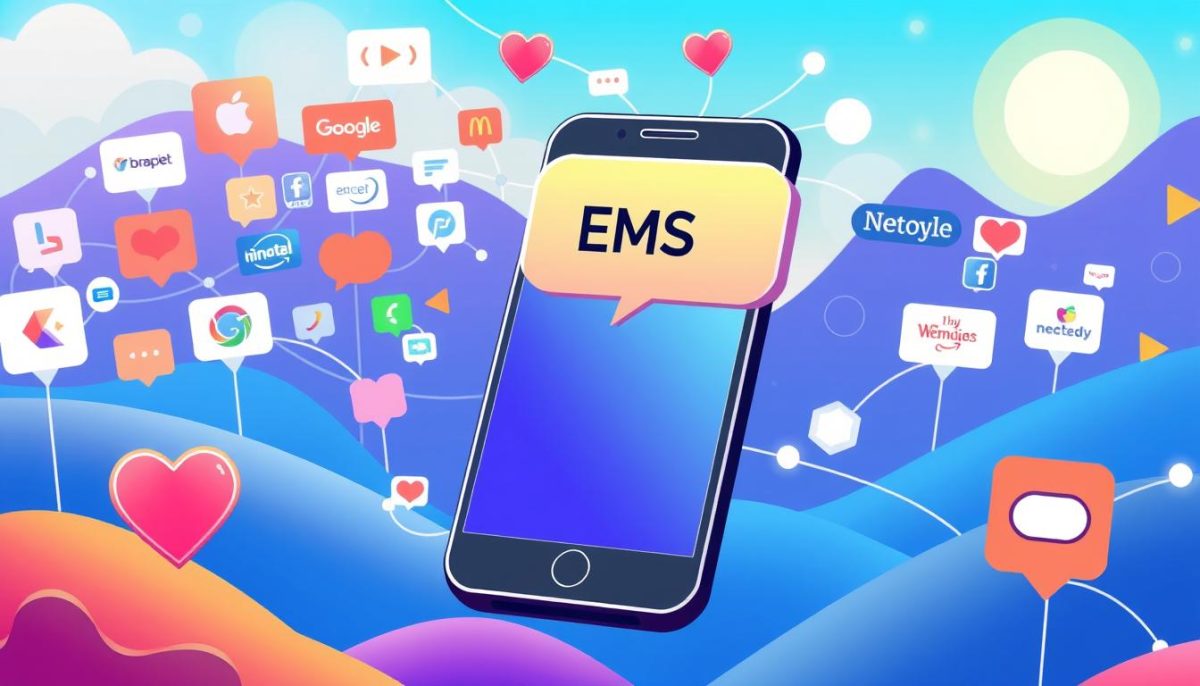In today’s fast-paced digital landscape, SMS marketing has emerged as a powerful strategy for big brands aiming to boost customer engagement and enhance their overall marketing strategies. With the majority of consumers relying on mobile devices for communication, brands like Nike and Starbucks are harnessing the potential of mobile marketing to reach customers with timely, relevant messages directly to their phones. This approach not only helps in driving sales but also fosters customer loyalty and retention in an increasingly competitive market.
Understanding SMS Marketing and Its Importance
SMS marketing has emerged as a vital tool in the realm of communication strategies deployed by brands aiming to enhance customer interaction. The definition of SMS marketing refers to the method of sending promotional content and transactional information directly to consumers via text messages. This direct approach has garnered attention due to its remarkable open rates, which often surpass 90%. Such statistics highlight the effectiveness of this marketing channel.
What is SMS Marketing?
At its core, SMS marketing serves as a direct line of communication between businesses and their customers. This effective marketing strategy allows brands to deliver timely information about promotions, events, and product launches. Those choosing to implement SMS marketing programs benefit from instant engagement, fostering a sense of urgency among consumers that email and social media messages may not achieve. By utilizing this channel, brands can significantly enhance their customer communication efforts.
Why SMS Marketing Matters for Big Brands
The marketing importance of SMS marketing cannot be overstated, especially for large enterprises. Companies like Starbucks and Nike harness this powerful tool to build strong connections with their customer base. Direct communication through SMS fosters customer loyalty, allowing brands to engage recipients with personalized messages that resonate. The immediacy of text messaging helps brands swiftly respond to consumer needs, reinforcing positive relationships and enhancing overall satisfaction.

How Big Brands Are Using SMS To Their Advantage
SMS marketing has transformed how brands connect with consumers, making it an essential tool for engaging customers. Several big brands have implemented effective SMS campaigns, illustrating innovative customer engagement methods. Below are some case studies highlighting notable successes in this marketing approach.
Case Studies of Successful SMS Campaigns
Dunkin’ Donuts serves as a standout example of how SMS campaigns can boost client engagement. The brand’s strategy involved sending timely promotions directly to customers’ mobile devices, resulting in increased store visits. Engaging customers through targeted offers proved highly effective and demonstrated the power of immediate communication in big brand marketing.
Engaging Customers Through Personalized Messaging
Another example comes from Sephora, which has successfully harnessed personalized messaging. By tailoring messages based on previous purchases and customer preferences, Sephora enhances user experience. Such strategies not only drive sales but also foster loyalty among consumers, showcasing the significance of personalization in modern SMS campaigns.
Best Practices for Implementing SMS Marketing
Implementing SMS marketing effectively requires a strategic approach. Focusing on SMS marketing best practices can yield significant results. Emphasizing quality over quantity is vital, particularly when it comes to subscriber list management. Building and maintaining an engaged subscriber list lays the groundwork for a successful campaign. Additionally, awareness of message timing and compliance regulations is essential to ensure a positive experience for subscribers.
Building a Quality Subscriber List
A well-curated subscriber list enhances the overall impact of your SMS marketing efforts. Brands can encourage sign-ups by offering attractive incentives, such as discounts or exclusive content. These tactics often attract interested customers who are genuinely keen to receive messages. To further refine subscriber list management, businesses should regularly update their lists, removing inactive contacts and engaging with active users strategically.
Timing and Frequency of Messages
Message timing plays a crucial role in engaging subscribers without overwhelming them. Research indicates that sending messages during optimal hours can boost open rates significantly. Striking a balance in frequency is important; sending messages too frequently may lead to subscriber fatigue or opt-outs. Brands should experiment with different timings and carefully analyze engagement metrics to identify what works best.
Compliance and Regulations in SMS Marketing
Adhering to compliance regulations is non-negotiable in SMS marketing. Laws such as the Telephone Consumer Protection Act (TCPA) require brands to gain explicit consent before sending promotional messages. Additionally, offering an easy opt-out option ensures that subscribers have control over their communication preferences. Following these guidelines not only helps maintain compliance but also enhances credibility and trust with an audience.

Future Trends in SMS Marketing for Big Brands
The future of SMS marketing is ripe with innovation, driven by emerging trends that leverage technology advancements. As brands increasingly prioritize personalized customer experiences, AI integration will play a pivotal role. By employing machine learning algorithms, companies can tailor SMS campaigns to individual preferences, enhancing engagement levels and fostering loyalty.
Another significant trend is the shift toward conversational SMS marketing. Brands are exploring two-way communication channels, allowing customers to respond directly through text messages. This interactive approach not only improves customer service but also creates opportunities for real-time feedback and engagement strategies that resonate with their audience.
Moreover, as brands adapt to evolving consumer expectations, a heightened focus on data security and privacy will shape SMS marketing practices. Ensuring compliance with regulations while delivering personalized content will be crucial. As technology continues to evolve, so too will the methodologies big brands employ to maintain meaningful connections through SMS, making it an essential component of future marketing strategies.



